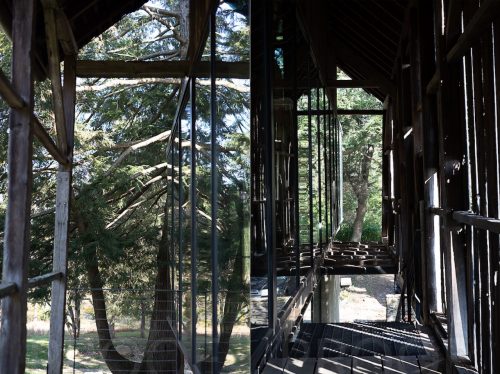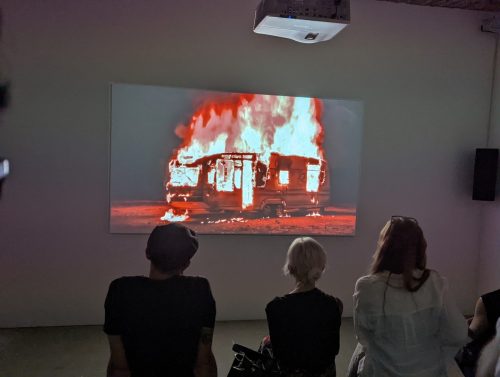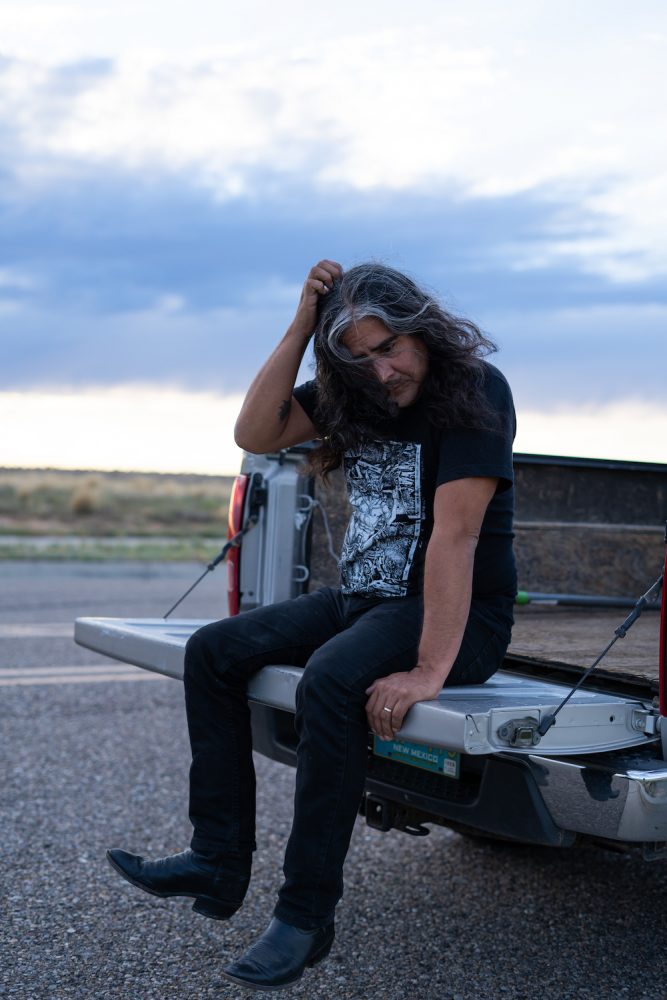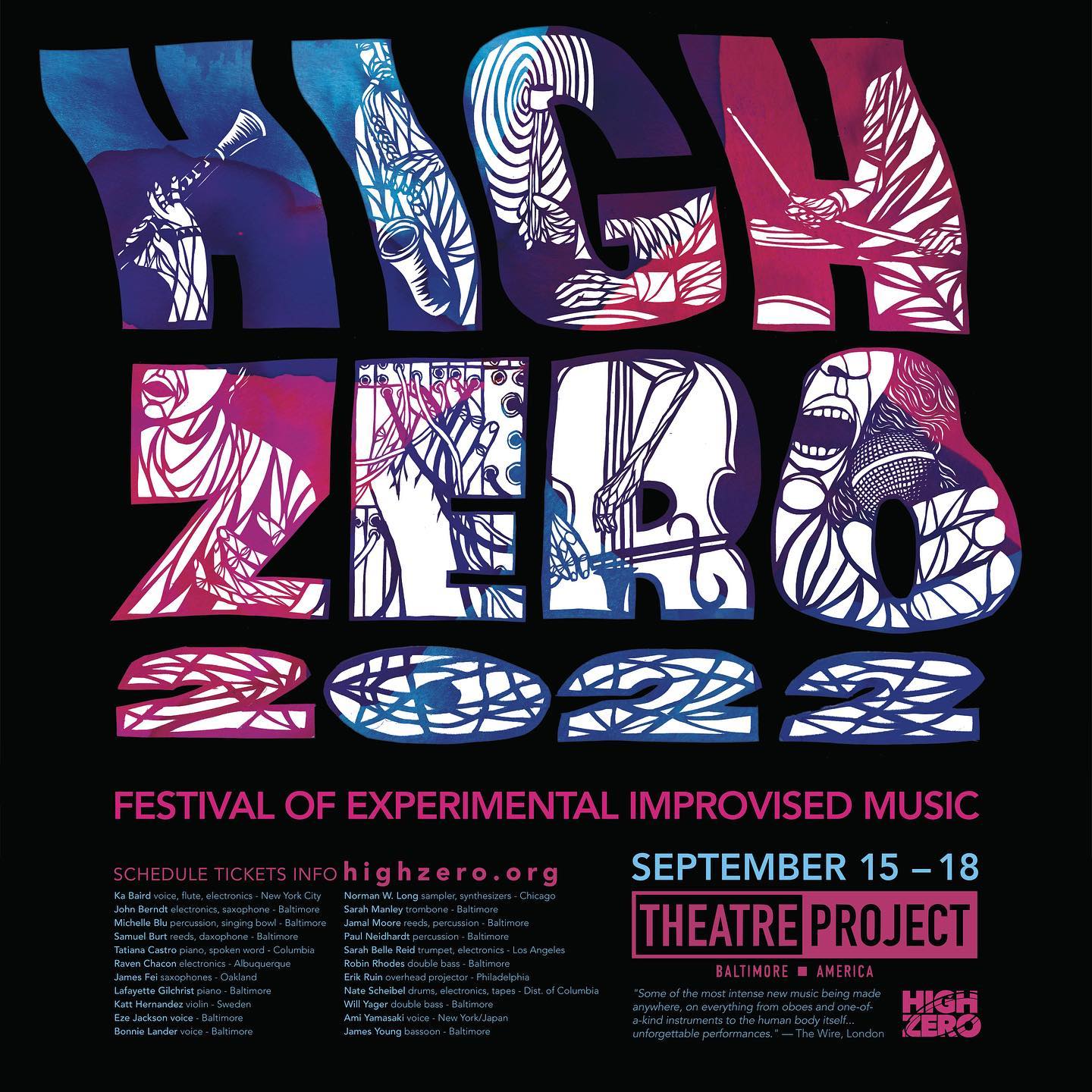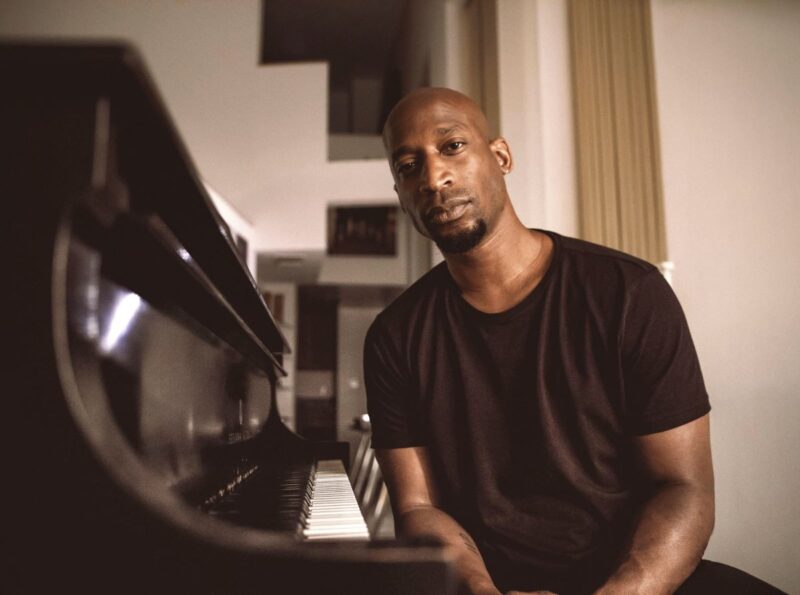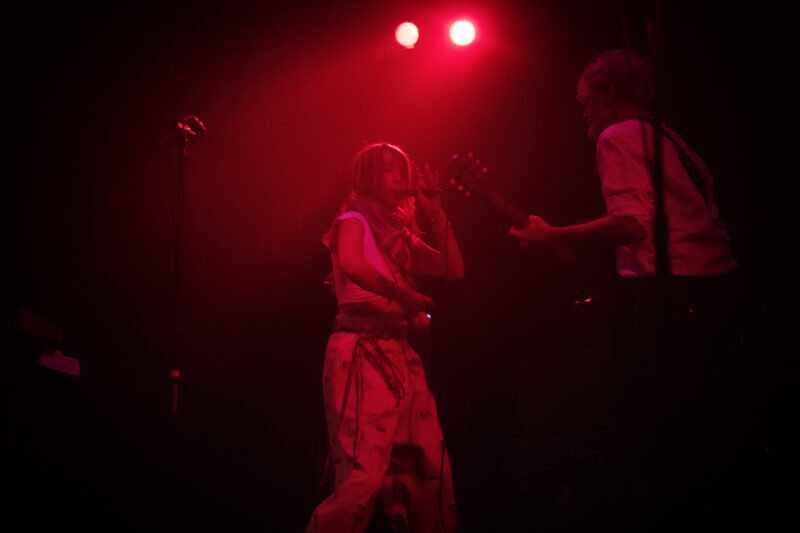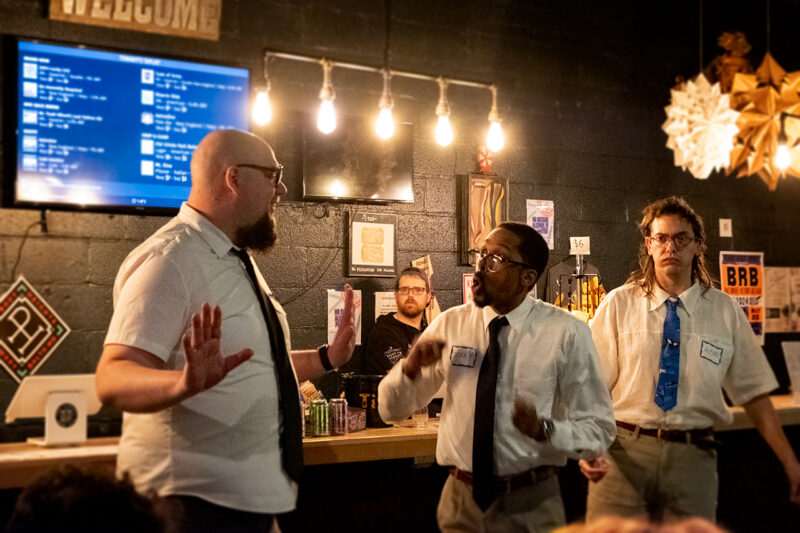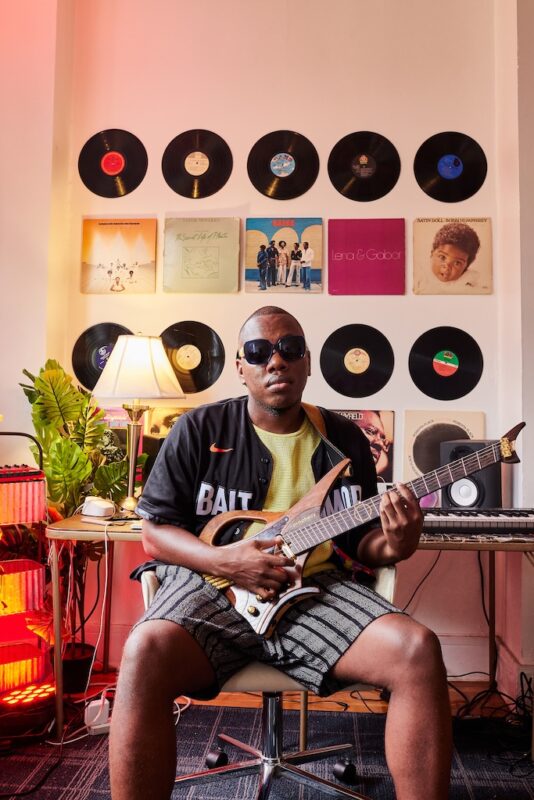What do you do after you win a Pulitzer Prize and a held-over exhibit at the Whitney Biennial? If you’re Raven Chacon, you come to Baltimore to perform at High Zero, the annual festival for experimental improvised music that celebrates its 24th year this month.
Chacon’s banner year began in March, when a selection of his video, photography, and sound works went on display as part of this year’s Whitney Biennial, including For Zitkála-Šá—a series of 13 graphic scores dedicated to contemporary American Indian, First Nations, and Mestiza women working in music performance, composition, and sound art.
“Zitkála-Šá was a composer, a Dakota woman who lived at the turn of the century. And in addition to making music she was also an activist a writer, a leader, a poet—so many things,” Chacon says. “The scores are dedications to contemporary Indigenous women, musicians, and composers … In a way, this kind of portraiture—one-page graphic scores—may be better at telling the story of their work, their ideas, and their biographies.”
Shortly afterward, he was awarded the Pulitzer Prize for Music for Voiceless Mass, a site-specific large ensemble piece composed specifically for the Nichols & Simpson organ at The Cathedral of St. John the Evangelist in Milwaukee, Wisconsin. A meditation on space, history, and power, Voiceless Mass “considers the futility of giving voice to the voiceless, when ceding space is never an option for those in power.” The historic award marked the first time a Native American has been awarded a Pulitzer in any category.
